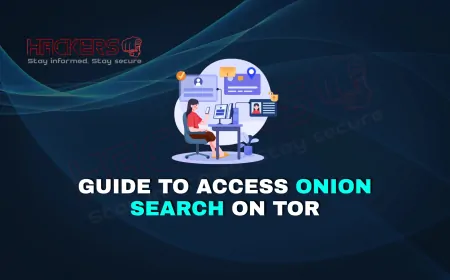Expert Strategies for Passing the CKA Certification on the First Attempt
The Certified Kubernetes Administrator (CKA) exam is your gateway to proving expertise in managing Kubernetes clusters, a skill in high demand as companies embrace cloud-native technologies. Offered by the Cloud Native Computing Foundation (CNCF), this hands-on exam tests your ability to tackle real-world challenges in a live Kubernetes environment. With only two hours to complete 15–20 tasks, passing on the first attempt requires strategic preparation, practical experience, and a calm mindset. Whether you’re new to Kubernetes or a seasoned IT professional, the right approach can make all the difference. In this beginner-friendly guide, we’ll share expert strategies to help you pass the CKA exam on your first try. Written in a clear, human tone, this blog will break down preparation tips, exam techniques, and common pitfalls to avoid. Let’s dive in and set you on the path to becoming a certified Kubernetes administrator!

Table of Contents
- Why Passing the CKA on the First Attempt Matters
- Understanding the CKA Exam
- Strategy 1: Master the CNCF Curriculum
- Strategy 2: Prioritize Hands-On Practice
- Strategy 3: Learn to Use Kubernetes Documentation
- Strategy 4: Practice Time Management
- Strategy 5: Simulate Exam Conditions
- Summary of Expert Strategies
- Common Mistakes to Avoid
- Exam Day Tips for Success
- Conclusion
- Frequently Asked Questions
Why Passing the CKA on the First Attempt Matters
The CKA exam is a challenging, performance-based test that requires practical Kubernetes skills. Passing on the first attempt saves you time, money, and stress, while boosting your confidence and credibility. With a passing score of 66%, every task counts, and a strategic approach can help you maximize your score. By preparing effectively, you can avoid the need for costly retakes and start leveraging your certification to land high-demand roles in DevOps and cloud engineering sooner.
These strategies will guide you to approach the exam with confidence and precision, setting you up for success on day one.
Understanding the CKA Exam
The Certified Kubernetes Administrator (CKA) exam is a two-hour, online, proctored test that evaluates your ability to manage Kubernetes clusters. You’ll complete 15–20 hands-on tasks in a live environment using the kubectl command-line tool. The exam covers five domains:
- Cluster Architecture, Installation, and Configuration (25%): Setting up clusters with tools like
kubeadm. - Workloads and Scheduling (15%): Managing pods, deployments, and stateful sets.
- Services and Networking (20%): Configuring services, ingress, and network policies.
- Storage (10%): Handling persistent volumes and storage classes.
- Troubleshooting (30%): Diagnosing and fixing cluster and application issues.
You’ll have access to the official Kubernetes documentation, and the exam is scored based on task completion, with a passing threshold of 66%.
Strategy 1: Master the CNCF Curriculum
The CNCF provides a detailed CKA curriculum outlining the exact topics and tasks covered in the exam. Mastering this curriculum ensures you focus on the right skills and avoid wasting time on irrelevant material.
- Download the Curriculum: Find it on the CNCF website to use as your study roadmap.
- Prioritize High-Weight Domains: Focus on troubleshooting (30%) and cluster architecture (25%), as they carry the most points.
- Align Study Resources: Use courses like KodeKloud or Linux Foundation that cover the curriculum comprehensively.
- Practice Specific Tasks: Work on tasks like cluster setup, pod deployment, and network policy configuration listed in the curriculum.
By aligning your preparation with the curriculum, you’ll cover all critical areas and avoid surprises on exam day.
Strategy 2: Prioritize Hands-On Practice
The CKA is a hands-on exam, so theoretical knowledge alone won’t cut it. You need extensive practice in a live Kubernetes environment to build confidence and speed.
- Use Lab Platforms: Practice with tools like KodeKloud, Killercoda, Minikube, or Kind for real-world scenarios.
- Spend 60% of Study Time Practicing: Focus on tasks like creating deployments, configuring storage, and debugging pods.
- Experiment Freely: Make mistakes in labs to learn how to recover from errors like misconfigured YAML files.
- Use Free Resources: Platforms like Killercoda offer free labs to practice without setup costs.
Hands-on practice builds the muscle memory needed to execute tasks quickly and accurately during the exam.
Strategy 3: Learn to Use Kubernetes Documentation
The official Kubernetes documentation is available during the exam, but you need to know how to use it efficiently to save time.
- Familiarize with the Docs: Explore kubernetes.io/docs, focusing on the “Tasks” and “Reference” sections.
- Bookmark Key Pages: Save links to common tasks like creating pods or configuring ingress for quick access.
- Practice Searching: Use the search bar to find YAML examples and
kubectlcommands during practice sessions. - Avoid Over-Reliance: Memorize frequently used commands to reduce documentation lookups during the exam.
Mastering the documentation ensures you can find solutions quickly, leaving more time for task completion.
Strategy 4: Practice Time Management
With only two hours to complete 15–20 tasks, time management is critical. Poor pacing can prevent you from finishing, lowering your score.
- Prioritize High-Point Tasks: At the start, skim tasks and tackle those with higher point values first (noted in the exam interface).
- Set Time Limits: Aim to spend 5–7 minutes per task, bookmarking complex ones to revisit if time allows.
- Practice Timed Labs: Use platforms like KodeKloud to complete sets of tasks within two hours.
- Stay Calm: If stuck, move on to avoid wasting time on a single task.
Effective time management maximizes your score by ensuring you complete as many tasks as possible.
Strategy 5: Simulate Exam Conditions
Simulating the exam environment during preparation helps you build confidence and familiarity with the test setup.
- Use a Terminal-Based Environment: Practice in a Linux terminal to mimic the exam’s command-line interface.
- Take Mock Exams: Platforms like KodeKloud and Linux Foundation offer mock exams that replicate the CKA format.
- Limit Resources: Practice with only the Kubernetes documentation and
kubectlto simulate exam constraints. - Time Yourself: Complete 15–20 tasks in two hours to practice pacing under pressure.
Simulating exam conditions prepares you for the real test’s intensity and format.
Summary of Expert Strategies
Below is a table summarizing the expert strategies for passing the CKA exam:
| Strategy | Key Actions | Benefit |
|---|---|---|
| Master the Curriculum | Study CNCF curriculum, prioritize high-weight domains | Focuses preparation on exam topics |
| Hands-On Practice | Use labs like KodeKloud, Killercoda | Builds practical skills |
| Use Documentation | Learn to navigate Kubernetes docs efficiently | Saves time during exam |
| Time Management | Prioritize tasks, practice timed labs | Maximizes task completion |
| Simulate Exam | Use mock exams, terminal-based practice | Builds exam-day confidence |
Common Mistakes to Avoid
Even well-prepared candidates can make mistakes that hurt their score. Avoid these pitfalls:
- Ignoring the Curriculum: Study only exam-relevant topics to avoid wasting time.
- Lack of Practice: Focus on hands-on labs over theory to build practical skills.
- Overcomplicating Solutions: Use simple
kubectlcommands when possible instead of complex YAML files. - Poor Time Management: Don’t spend too long on one task; move on and revisit if time allows.
- Not Reading Instructions: Carefully read task requirements to avoid missing key details.
By steering clear of these mistakes, you’ll stay focused and maximize your score.
Exam Day Tips for Success
On exam day, stay calm and strategic with these tips:
- Prepare Your Environment: Ensure a stable internet connection and a quiet workspace.
- Test Your Setup: Verify your webcam, microphone, and browser compatibility before starting.
- Skim Tasks First: Review all tasks to prioritize high-point ones and plan your time.
- Use Documentation Wisely: Search the Kubernetes docs efficiently for unfamiliar tasks.
- Stay Calm Under Pressure: If a task is tough, bookmark it and move on to keep momentum.
These tips will help you stay focused and perform at your best during the exam.
Conclusion
Passing the CKA certification on your first attempt is achievable with the right strategies. By mastering the CNCF curriculum, prioritizing hands-on practice, using Kubernetes documentation effectively, managing your time, and simulating exam conditions, you’ll be well-prepared to tackle the test. Avoiding common mistakes and following exam-day tips will further boost your chances of success. With dedication and a strategic approach, you can earn the CKA and unlock exciting career opportunities in the cloud-native world. Start preparing today, and take the first step toward becoming a certified Kubernetes administrator!
Frequently Asked Questions
What is the CKA exam?
A two-hour, hands-on test by the CNCF to validate Kubernetes cluster management skills.
Why is the CKA exam challenging?
It requires practical skills in a live Kubernetes environment under time pressure.
What is the passing score for the CKA?
You need a score of 66% or higher to pass.
Can beginners pass the CKA on the first attempt?
Yes, with dedicated preparation and hands-on practice, beginners can succeed.
How long should I prepare for the CKA?
Most candidates need 2–3 months, depending on prior Kubernetes experience.
What is kubectl?
A command-line tool for managing Kubernetes clusters.
Can I use documentation during the CKA exam?
Yes, the official Kubernetes documentation is allowed.
What does the CKA exam cover?
Cluster architecture, workloads, networking, storage, and troubleshooting.
How do I practice for the CKA?
Use hands-on labs like KodeKloud, Killercoda, Minikube, or Kind.
What is the CNCF curriculum?
A detailed guide from CNCF outlining the CKA exam’s topics and tasks.
Why is time management important in the CKA?
With only two hours for 15–20 tasks, pacing ensures you complete enough to pass.
What are common CKA exam mistakes?
Ignoring the curriculum, lack of practice, and overcomplicating solutions.
How do I use Kubernetes documentation effectively?
Familiarize yourself with its structure and bookmark key sections like “Tasks.”
Can I take the CKA exam online?
Yes, it’s proctored online with a stable internet connection.
What is a Kubernetes cluster?
A group of nodes that run containerized applications, managed by Kubernetes.
How do I simulate CKA exam conditions?
Practice in a terminal with mock exams and a two-hour time limit.
Does the CKA expire?
It’s valid for three years, after which recertification is required.
What is troubleshooting in the CKA exam?
Diagnosing and fixing issues like pod failures or networking problems.
Are there free resources for CKA practice?
Yes, Killercoda and Minikube offer free Kubernetes labs.
How do I prioritize tasks in the CKA exam?
Start with high-point tasks and bookmark complex ones to revisit.
What's Your Reaction?










































































